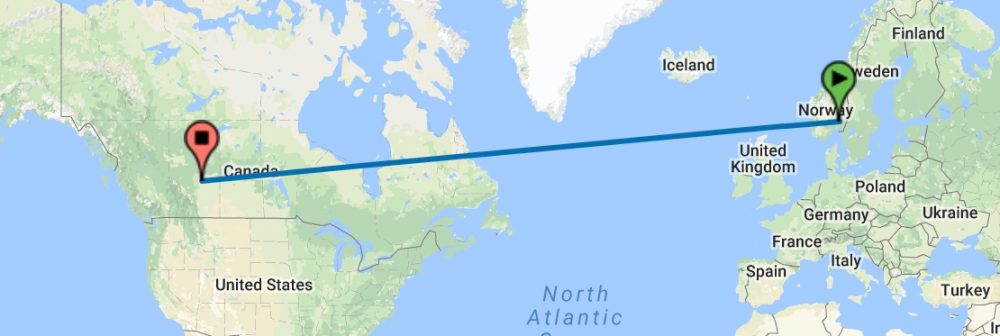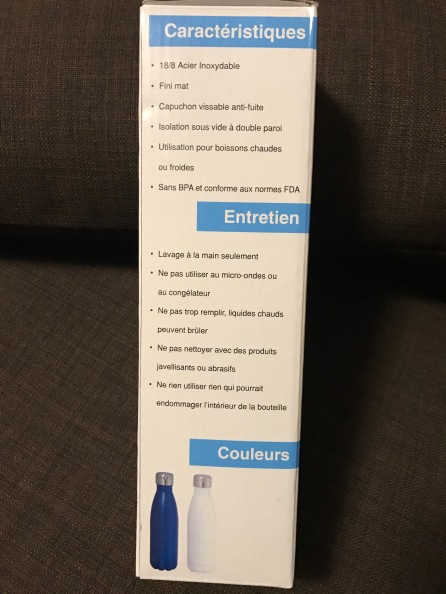This book is a great resource!

February 21st is officially recognized by UNESCO as International Mother Language Day. I didn’t know about this day until 2011, when a couple of international students from Bangladesh introduced me to the origin of the movement to protect Bengali—(they’re the first two students in the video that we put together that year in the International Centre at the University of Alberta).
“Je te parle dans ta langue, et c’est dans mon langage que je te comprends” Édouard Glissant (1928-2011)
As a language learner, this day always reminds me of a quote from the Caribbean Francophone poet Édouard Glissant, which essentially says “I speak to you in your tongue, but I understand you in my language”. On that note, I really appreciated the 2017 message from UNESCO Director-General, Irina Bokova, recognizing the occasion:
“We are beings of language. Cultures, ideas, feelings and even aspirations for a better world come to us first and foremost in a specific language, with specific words. These languages convey values and visions of the world that enrich humanity. Giving value to these languages opens up the range of possible futures, and strengthens the energy needed to achieve them. On the occasion of this Day, I launch an appeal for the potential of multilingual education to be acknowledged everywhere, in education and administrative systems, in cultural expressions and the media, cyberspace and trade. The better we understand how to value languages, the more tools we will have to build a future of dignity for all.”

Someone gave me a free (swag) water bottle the other day–looking at the picture on the box, I could see that the design was one that seems to be pretty popular these days. With a somewhat subdued design that wasn’t dominated by a corporate logo splashed everywhere (hidden here), it seemed like a keeper. Before throwing out the box, however, I thought it would be a good idea to check if I was going to be able to wash my water bottle in the dishwasher.
That’s when it happened– I picked up the box and….found myself looking at the French version of the description and instructions. The language learning mind games had begun.

As someone who likes to speak French sometimes (still a rusty B2), I was essentially faced with a question: read the French, or take the easy route and flip over to the English?
This is a wonderful video that captures the story behind the Confucius Institute here in my city. I’ve said it in other posts, but after living in China for a few years, my earnest study of Mandarin didn’t really begin until I returned to Canada; as part of that process, I first got in touch with the CIE about four years ago to ask about participating in the HSK proficiency tests.
The staff have always been exceptionally warm and supportive—in addition to registering for the tests and making use of their fantastic library, I’ve also had the pleasure of participating in some of their public events.
When I first started studying Chinese, I don’t think I would have even had enough imagination to ask if a Chinese reggae band existed; I mean really— Chinese reggae? As it happens, I just happened to stumble upon one such band the other day—they’re called Long Shen Dao (龙神道 lóng shén dào).
The whole thing was actually quite accidental—-I was looking for a playlist of Chinese music to play while I was doing some work and one of the youtube thumbnails popped out at me. After checking out the video (not this one), I just copied the name of the band (from the title of the video) and pasted it into the youtube search box and–voila–the song below was in the results.
If you generally like reggae, I think you’ll have to agree that they’ve got a really good handle on the sounds of classic reggae. One interesting touch is that they use a zither (古筝 gǔzhēng) in most of their songs. Definitely worth a listen.
I think many folks would find the meeting of Chinese and Caribbean culture interesting and potentially intriguing; however, as a Canadian of mixed Welsh-Scottish/West-Indian origin, reggae (and to a greater extent, calypso) was what my dad and his friends would play at house parties when I was little. It was good fun to have such a ‘home culture’ connection moment with this unique corner of the Chinese music scene. The real kicker will be when I play this song for my dad.
For the record, reggae in Chinese is 雷鬼 (léi guǐ).
Regardless of your performance on standardized tests, If you’ve developed some competency in another language, do all of the following describe your level of comfort in that language?
1. Able to write coherent text, explaining somewhat complicated circumstances? Able to do the same verbally, over the phone.2. Able to persuade, teach or train?3. Able to calm a tense situation?4. Aware when you are being misunderstood, and able to get conversation back on track?5. Develop professional rapport with someone who initially doubts your abilities?6. Write a comprehensive report?7.?
So many arguments about ‘the best way to go’ for language learners at different levels…
The tricky part, of course, is that what works for one person might be totally off-base for you.
Ultimately, we can only really judge ‘what works’ for ourselves—if you find yourself arguing, it’s probably a sign that you should try something different…… conversely, what works for you may not work so well for someone else….. “learn and let learn” I guess.
The designers of most language tests (DELF, JLPT, HSK, etc.) are trying harder and harder to make test scores reflect real world communicative ability; are you aiming beyond standard language tests (that really only mark the beginning of the next stage of learning)?
As you consider your goals (however broadly), what works for you?
It’s always amazing to listen to people who seem to have a knack for making your native language come to life, even when they’re only saying a few sentences. That was the thought that came to mind when I stumbled upon an old clip of James Earl Jones presenting Sean Connery with an award, while giving eloquent praise to Sean Connery’s voice as one that “inhabits time” . It’s a great little video (see below) because James Earl Jones, of course, is also a legendary ‘voice’ of the North American entertainment industry.
When I think of interesting voices in languages that I’ve studied, one ‘voice’ that comes to mind is the legendary Chinese storyteller Shan Tian Fang (单田芳). I remember first hearing him on the radio while riding in taxis when I lived in Xi’an. I always enjoy trying to imitate voices so, after hearing his unmistakable voice several times, even though I couldn’t speak much Chinese, I remember asking someone at work “[imitating radio voice] Who’s the guy on the radio that talks like this?” [/imitating]—my colleague was almost in tears laughing at my “Shan Tian Fang” voice speaking in English:)
As I recall, my colleague then wrote down Shan Tian Fang’s name in Chinese so I could ask for a DVD at the video store, and told me what radio station I could tune into if I wanted to listen to more of his epic tales.
Anyway, the point that I wanted to raise was that I think it’s important to find examples of people who can poetically speak the languages we’re trying to study. Even if you don’t ‘study’ these actors, it’s always a good idea to have a sense of what an eloquent speaker sounds like in your target language. With so much audio and video available online (even for free) these days, it’s never been easier to explore old tv, movies and even commercials in any language.
I don’t count myself as a hyperpolyglot(!), but I can definitely agree that the key to successful language learning is simply finding a way to enjoy the process. Judging from the book review in The Economist, this seems to be part of the message of Michael Erard’s new book, Babel No More: The Search for the World’s Most Extraordinary Language Learners.
from the review: “Hyperpolyglots may begin with talent, but they aren’t geniuses. They simply enjoy tasks that are drudgery to normal people. The talent and enjoyment drive a virtuous cycle that pushes them to feats others simply shake their heads at, admiration mixed with no small amount of incomprehension.”
If you’re an active language learner, are you on an upward spiral, or are you stuck in the language-learning doldrums? What kinds of things do you enjoy doing that other people might think of as ‘drudgery’?
[*After reading the review, I submitted a suggestion to my local library and they’ve already agreed to order the book. I honestly can’t say it often enough: I love the Edmonton Public Library! (update Jan 16/2012: the book is now in the epl database]